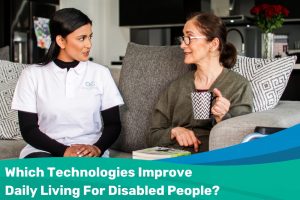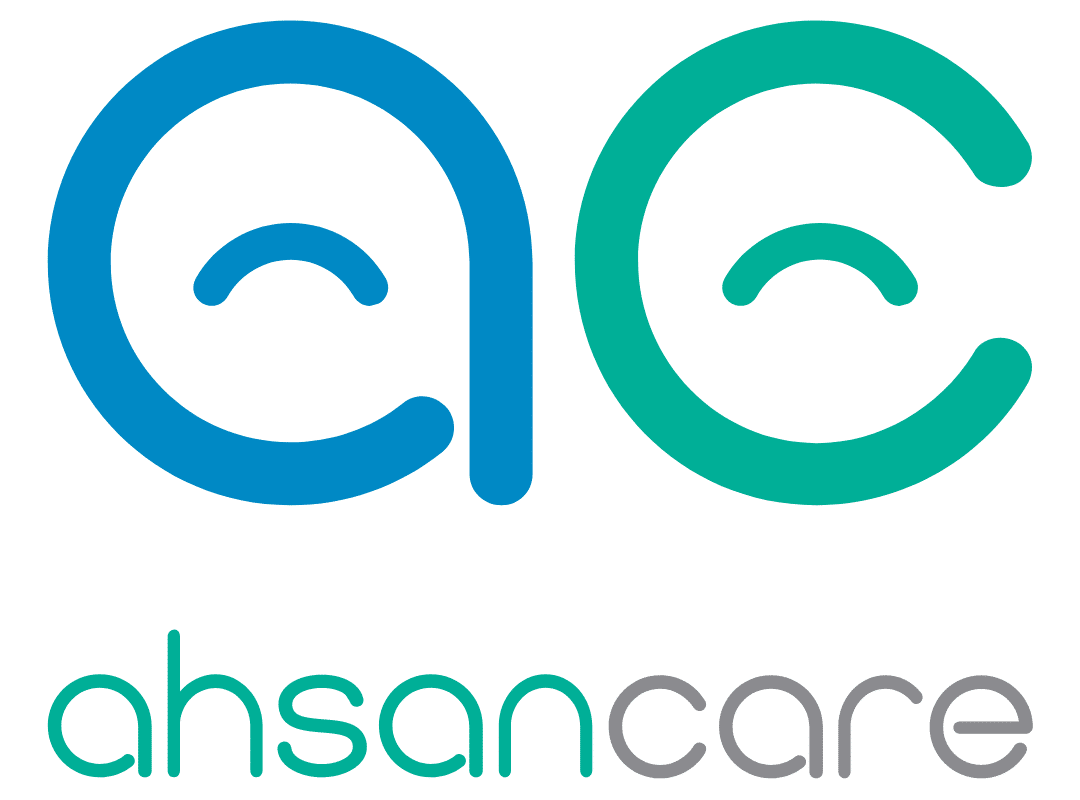Which Technologies Improve Daily Living For Disabled People?

Think of doing your tasks more easily every day, connecting with loved ones more freely, and confidently moving around. Technology is making these possibilities a reality for people with disabilities.
This constantly changing field offers many tools that help people feel more independent and fulfilled in their lives. Check out some of the coolest tech that is making life better for these people.
How can technology increase independence in the daily lives of people with disabilities?
Technology promotes freedom across different aspects of daily life.
- Mobility: Electric wheelchairs with cool features like obstacle detection and joystick controls give you more freedom to move around. Smart prosthetics can also move like the real deal, making you more active and coordinated.
- Communication: Software is available so people with trouble speaking can connect effectively. Augmented and alternative communication, or AAC, systems use symbols and pictures to help express thoughts. Video chat apps help unite people, regardless of distance, and strengthen social connections.
- Self-care: Smart medication dispensers ensure timely medicine intake, while automatic reminders can assist with tasks like showering or preparing meals. Wearable health monitors track vitals and activity levels, enabling proactive health management.
What assistive technologies are available to meet communication needs?
Communication is a basic need, and technology has available solutions to help disabled people connect better.
- Speech-to-text software: This can translate what is said into text, enabling persons with speech disability to talk to others through typing or synthesised voice.
- Voice-activated devices: Virtual assistants and smart speakers can be fully controlled with spoken commands. This allows for hands-free communication, information access, and control of smart home devices.
- AAC systems: People who have trouble with communication can use these systems which include pictures, text, and symbols. These can also be used with dedicated devices or even through mobile applications.
Can smart home technology enhance accessibility in the living environment?
Smart home technology is transforming how disabled people connect with their surroundings.
- Smart appliances: Devices like ovens and refrigerators have voice control features that allow for hands-free operation, increasing independence in the kitchen.
- Automated thermostats: These allow for remote temperature control, making you feel comfortable without requiring manual adjustments.
- Smart locks: These locks can be managed through a phone application, so you do not need physical keys and have extra security.
- Voice-controlled lighting: It’s convenient to manage the lights since you can give voice commands to switch them on or change their intensity.
These are just some of the possibilities, and using these technologies for disabled people is only developing further.
How can technology assist with the daily living tasks of disabled people?
Technology for disabled people extends beyond communication and mobility, offering assistance with everyday tasks, which is a good support for NDIS personal daily assistance.
- Personal care: Adaptive utensils can make eating easier for people with limited hand mobility. As mentioned earlier, smart pill dispensers and health monitors help manage health conditions and ensure timely medicine intake.
- Cooking and cleaning: You can control voice-activated appliances with simple voice commands, making meal preparation easier. Robot vacuums can handle cleaning duties, giving you more free time and saving energy.
Technology is also developing to support those with learning disabilities. Reminder apps and visual schedules can help with task management and organisation.
What are the benefits of using technology for learning and education?
Tech for people with disabilities is totally changing education, making learning more inclusive for everyone.
- Screen readers: These software programs read out loud what is on the screen so that the visually impaired can operate the digital devices.
- Magnification tools: Individuals with low vision are able to employ applications and screen magnifiers that cause the text and images displayed on a screen to be enlarged.
- Text-to-speech software: This technology allows the visually impaired to access written materials by turning text into spoken audio.
What emerging technologies hold promise for people with disabilities?
The future of tech for people with disabilities has a ton of exciting possibilities.
- Artificial intelligence (AI): Systems powered by AI have the power to offer personalised assistance, from learning preferences to daily needs. It’s like an intelligent assistant that gets what you need and gives you the perfect support.
- Virtual reality (VR): This tech can make lifelike simulations that can be used for rehab, studying, and even socialising. You can imagine practising real-life skills or exploring new places in a safe, virtual world.
- Brain-computer interfaces (BCIs): This awesome technology lets your brain connect with a computer. BCI could totally change the game for people with serious disabilities, making it easier for them to communicate and control things.
Where can you find more information and resources on technologies for disabled people?
The world of technology for disabled people is immense and progressing. Here are some resources to help you explore further:
- Government agencies: Many of them offer information and resources on assistive technology for daily living. You can learn more by visiting the National Disability Insurance Scheme (NDIS) website or other related departments in your state.
- Disability advocacy organisations: These groups support the inclusion and rights of disabled people. They often give info and resources on assistive technologies, like demonstrations and workshops.
- Assistive technology vendors: Many companies focus on developing and selling assistive technologies. Their websites offer product information, user guides, and sometimes even trial periods.
Empower yourself: Explore technologies for independent living
We now witness how technology for disabled people is a powerful tool for developing freedom, communication, and overall well-being. Here at Ahsan Care Provider, we understand the transformative potential of technology.
We’re dedicated to helping our clients discover and use assistive technologies that work best for them. Our expert team is here to assist you:
- Determine your particular needs and goals.
- Explore a range of assistive technologies.
- Learn how to use technology effectively.
- Connect with resources and support services.
Don’t wait to take control of your independence! Contact Ahsan Care Provider today to get a free consultation. Let’s talk about how tech can help you live delightfully. We’re glad to collaborate with you on your journey to a more independent and satisfying life!



